Licorice (licorice or sweet root) is a medicinal plant used for many centuries in both eastern and western folk medicine. In particular, it is used to treat bronchitis, constipation, stomach ulcers, heartburn, eczema, menstrual pain.
Licorice has a lot of useful properties and is generally safe to use, but there are still contraindications to it. Liquorice is forbidden to people suffering from high blood pressure, as well as patients with certain pathologies of the liver and kidneys, cardiovascular system. In addition, excessive enthusiasm for funds from it can cause side effects, and even poisoning.
Content
Common beneficial properties of licorice
Licorice is a perennial plant from the legume family, common in some regions of Europe and Asia. It got its other name - “sweet root” - because of the content of the substance, which is about 50 times sweeter than sugar. Licorice (usually its root) has been used since ancient times as a natural cure for colds and digestive problems. But in recent years, scientists have discovered many other properties of this plant.
The chemical composition and benefits of the components
Nowadays, scientists know that the biochemical composition of this plant can vary depending on its variety, as well as the place of growth. On average, licorice contains about 150 different components that have properties that are beneficial to the human body. The most valuable components can be combined into 4 groups:
- flavonoids;
- coumarins;
- triterpenoids;
- stilbenoids.

Flavonoids are known for their powerful antioxidant, antimicrobial, anti-inflammatory and antipyretic effects. Coumarins and stilbenoids are polyphenols that have the properties of natural antibiotics. In addition, they are known for their pronounced anti-inflammatory effect. The class of triterpenoids includes steroid substances.
As part of licorice, scientists counted about three dozen flavonoids. One of the most active is glabridin. This component has an anti-inflammatory effect, has a beneficial effect on metabolic processes in the body.
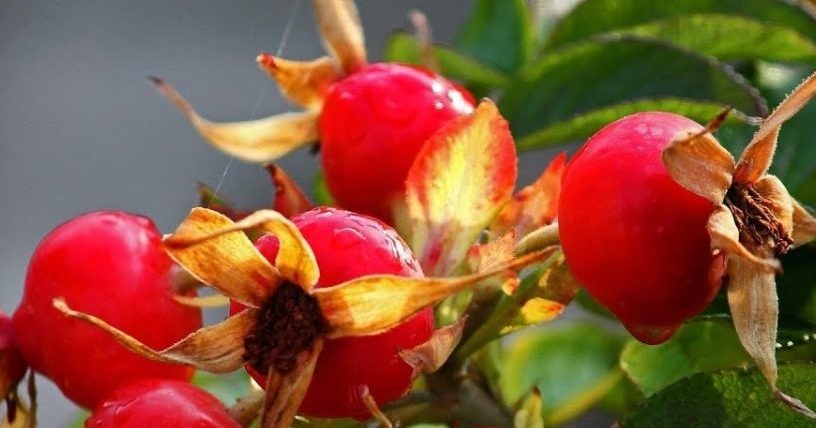 You may be interested in:
You may be interested in:In addition, this substance also affects the body as a phytoestrogen, which is why it is considered beneficial for women's health. Other substances from the flavonoid group have an antispasmodic effect on smooth muscles (urinary tract, bile ducts, intestines, stomach), strengthen blood vessels and normalize their permeability.
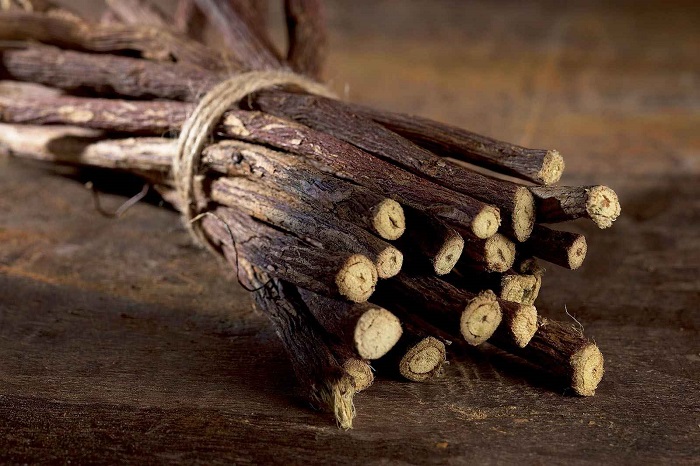
This substance is a powerful anti-inflammatory agent. In Japan, for example, an injectable form of glycyrrhizin is used to treat patients with a chronic form of hepatitis C. In addition, it has expectorant properties. Drugs based on this herb help soothe a cough, as well as quickly relieve sore throats. In addition, terpenoids affect the human body as an antiviral and immunomodulating agent.
Licorice has a stress-protective effect. The effect is achieved due to glycyrrhetinic acid, which activates the inhibition of cortisone, the so-called stress hormone, in the body. The same acid makes licorice root useful in the treatment of Addison’s disease, metabolic disorders, gastrointestinal ulcer, poisoning, infectious diseases and various kinds of intoxications.
In addition to the substances mentioned, licorice contains:
- carbohydrates;
- vitamin C;
- steroids;
- essential oils;
- resins;
- gum;
- asparagine;
- organic acids (malic, fumaric, citric, succinic).
Due to its rich chemical composition, licorice can be useful for:
- acute and chronic bronchitis;
- pneumonia;
- whooping cough;
- pharyngitis;
- laryngitis;
- asthma
- dyspepsia;
- indigestion
- irritable bowel syndrome;
- gastrointestinal ulcer;
- violation of the urinary system;
- flu
- hepatitis;
- cirrhosis of the liver;
- lupus erythematosus;
- high cholesterol;
- cramping pains;
- stress
- chronic fatigue;
- sleep disturbances;
- symptoms of menopause;
- gingivitis;
- skin diseases.
For women
Even ancient Chinese healers considered the sweet root very useful for women and this plant was considered as a source of youth, beauty and good health.
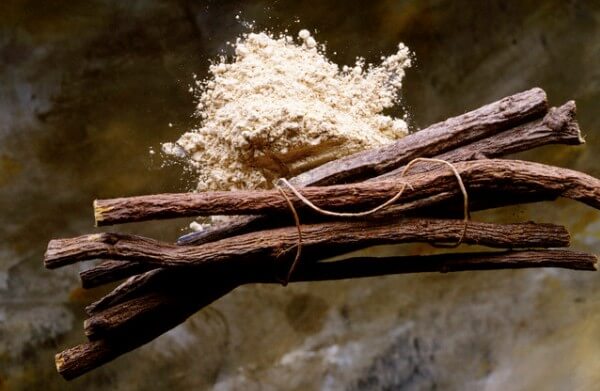
Thanks to these components, the plant helps regulate the menstrual cycle, stop pain during menstruation and increase fertility. In addition, it is an effective natural remedy for PMS.
Studies have shown that licorice is extremely beneficial for women during menopause. In some cases, the plant extract affects the female body even better than hormone replacement therapy. Teas and plant-based preparations reduce hot flashes and improve the overall well-being of women at menopause.
For men
It has been proven that the active substances of the sweet root can prevent and inhibit the onset and growth of tumor cells in male reproductive organs. This ability makes licorice extract indispensable in the treatment of prostate adenoma.
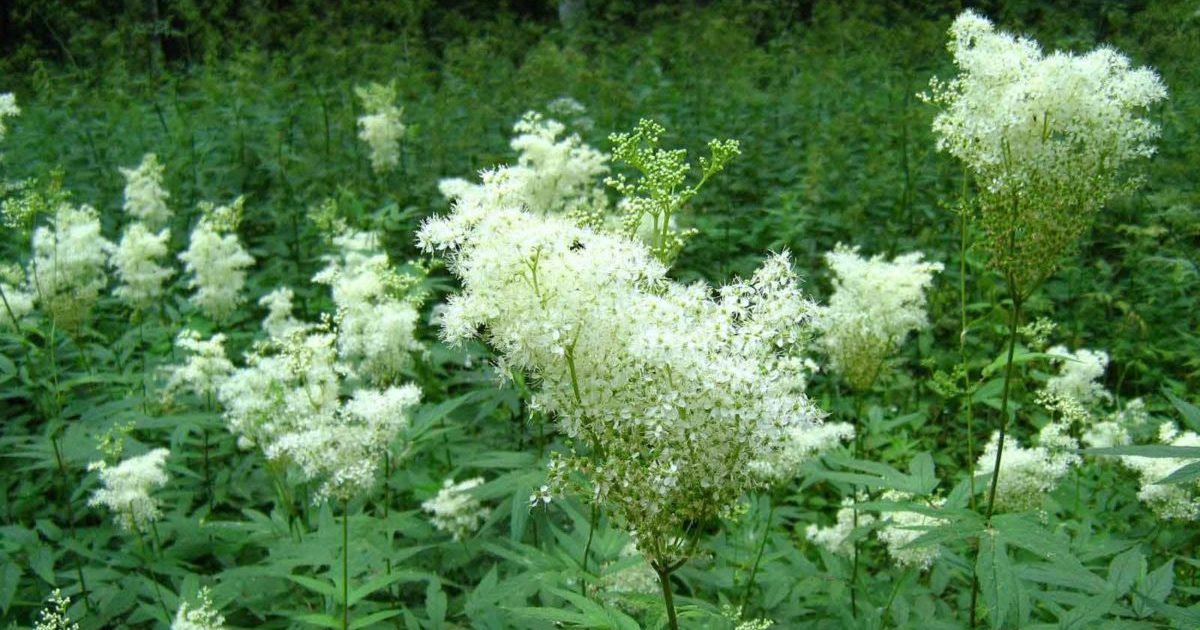 You may be interested in:
You may be interested in:By acting comprehensively on the male body, it indirectly improves the functioning of the genital area. In particular, the plant extract normalizes the urinary and nervous systems, eliminates insomnia, prevents obesity and diabetes, strengthens blood vessels.
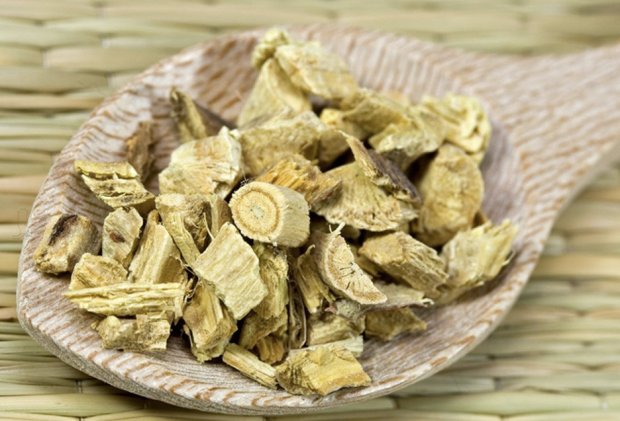
However, it is also not worth it to excessively get involved in this root for the male sex.Some researchers suggest that the substances contained in the grass, if the herbal remedies are not used correctly, can only aggravate erectile dysfunction and fertility problems. The fact is that the regular use of large quantities of licorice reduces the level of testosterone in the body - the main hormone for men.
For children
Children usually take licorice in the form of a sweet syrup. With this medicine, you can treat dry and wet cough in babies, as well as some gastrointestinal diseases. In addition, licorice for children is also useful as an immunity enhancing supplement.
- at the age of 1 to 3 years - up to 2.5 ml;
- 3-6 years - 5 ml;
- 6-9 years old - 7.5 ml;
- 9-12 years - 10 ml.
This remedy may also be useful for treating wounds and burns in children. The substances that make up licorice juice accelerate the healing of damaged areas, prevent inflammation and other complications.
The main contraindications and harm to licorice for the body
Despite the many advantages of licorice, abuse this herb is not worth it. Glycyrrhizin, one of the main components of licorice, with excessive accumulation in the human body can cause an increase in blood pressure, a decrease in the level of potassium in the body, and swelling.
Therefore, preparations based on this herb are contraindicated in:
- hypertension
- the presence of kidney disease;
- liver diseases;
- pregnancy
- diseases of the cardiovascular system.
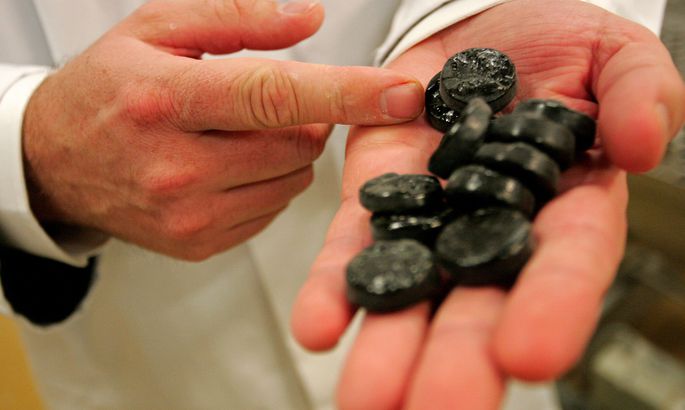
A study conducted in 2017 by Finnish experts showed that an increased content of glycyrrhizin in the body of a pregnant woman can negatively affect the development of the fetus.
If the dosage is disturbed during treatment of the child, licorice can cause side effects in the form of diarrhea, itching, rash, edema, and inflammation of the skin. For children under 1 year of age, liquorice preparations are strictly contraindicated.
According to studies, sweet root can be dangerous for women with cancer or at risk.
Uncontrolled licorice intake may increase the manifestation of hypertension, cause hypokalemia (potassium deficiency), heart rhythm disturbance, and impaired potency in men. To minimize the risk of side effects, you should not abuse the phytochemical: take it in large doses or for a long time.
It is important to consider that licorice should not be taken with certain medications. Typically, the restriction applies to:
- drugs to thin the blood and regulate blood pressure;
- corticosteroids and other drugs used in hormone therapy;
- diuretics;
- oral contraceptives.
Medicines based on licorice and the rules for their use
Means based on this plant can be purchased at pharmacies or prepared at home.
Syrup
Syrup is made from the root of the plant. This drug has antispasmodic, antimicrobial and anti-inflammatory effects. It is used to treat diseases caused by staphylococcus, as well as with stomach ulcers, hyperacid gastritis, colds, tracheitis and severe coughing. The advantage of this tool is that it is not only suitable, but also very popular with children.
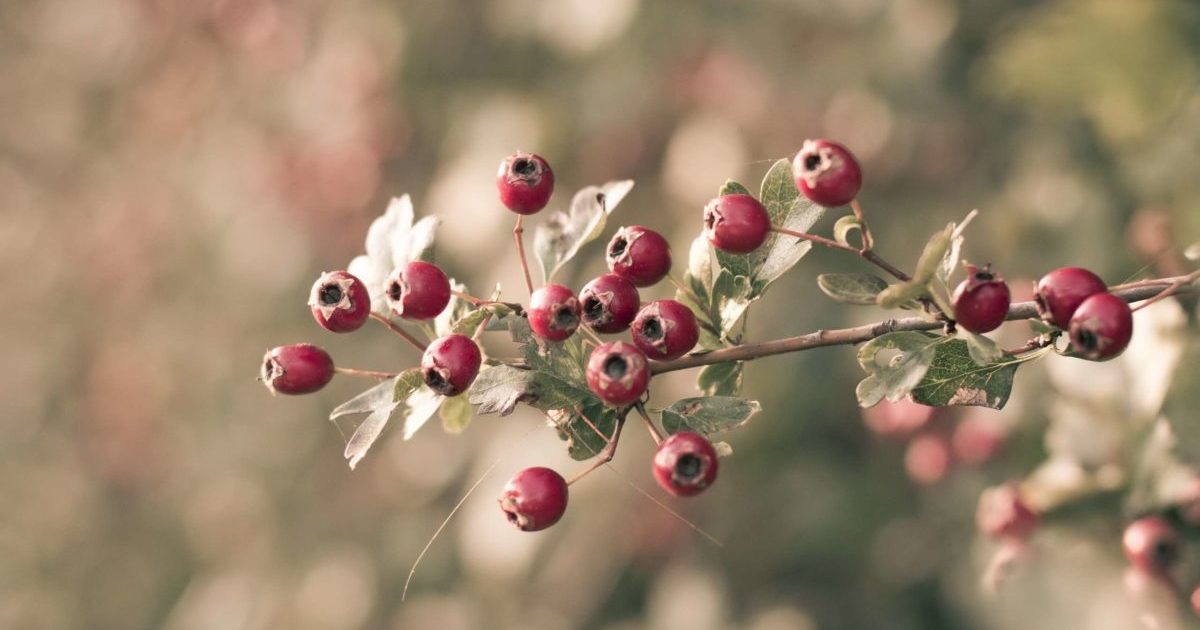 You may be interested in:
You may be interested in:You can make licorice syrup at home. Ingredients for the medicine:
- dense root extract - 4 g;
- sugar syrup - 80 g;
- alcohol - 10 ml.
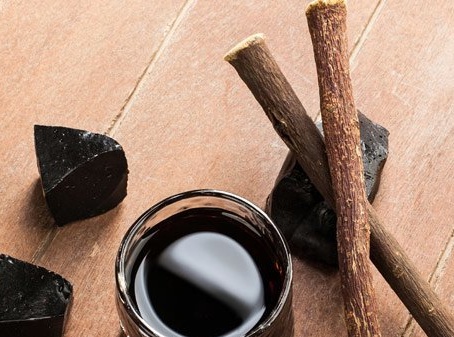
The same syrup may be useful for the treatment of colitis, dysbiosis, inflammation of the bladder, stagnation of bile and impaired functioning of the lymphatic system. In such cases, the drug is consumed in 1 tbsp. l with a glass of hot water on an empty stomach.
Extract
Licorice extract is also made from the root of the plant. The finished product is a thick viscous mass with a sugary-sweet taste and almost odorless. Such an extract is used externally to treat caries, herpes, dermatitis, erythema, and smoothing scars.
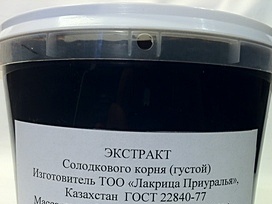
Licorice extract helps reduce pigmentation and accelerate the production of collagen, which is necessary to eliminate wrinkles. If such a tool is used internally, it will act on the body as immunostimulating.
Infusion
Infusion is used to treat dry cough. This tool can be useful for colds and diseases of the upper respiratory tract, at different stages of pneumonia, as well as for the treatment of cough in smokers and patients with tuberculosis.
Ingredients for Infusion:
- liquorice root;
- marshmallow root;
- elecampane root;
- boiled water - 400 ml.
Each plant component will need 1 tbsp. l Then take 2 tbsp. l ready plant mixture and pour the roots with hot water. Insist 8 hours. Take twice a day (before meals) in half a glass.
Tea
Medicinal tea can be prepared exclusively from liquorice root, or from a mixture of phytocomponents. One of the most popular recipes suggests making a drink like this:
- licorice root - 20 g;
- dogrose - 10 g;
- Icelandic moss - 10 g;
- plantain leaves - 10 g.
Another popular version of licorice tea is prepared according to this recipe:
- root and green part of licorice - 20 g;
- mint - 5 g;
- centaury (grass) - 5 g;
- lemon balm - 5 g.

In particular, such a drink relieves spasms, soothes, cures cough and stomach diseases.
Juice
Licorice root juice is a good natural medicine for gastritis and gastric ulcer. In addition, this tool retains all the beneficial properties inherent in a fresh plant. Fresh liquorice juice should never be consumed in pure form. It should be bred in large quantities of water. So, for 100 ml of water you can add only 1 ml of juice from the sweet root. This amount should be divided into 3 servings and drunk throughout the day. Before taking water with juice, you need to warm up a little.
Common questions
Licorice is a medicinal plant that humanity has been using for a long time to treat various diseases. Although this herb in most cases really has a beneficial effect on humans, scientific discoveries of recent years indicate that this plant is strictly forbidden.

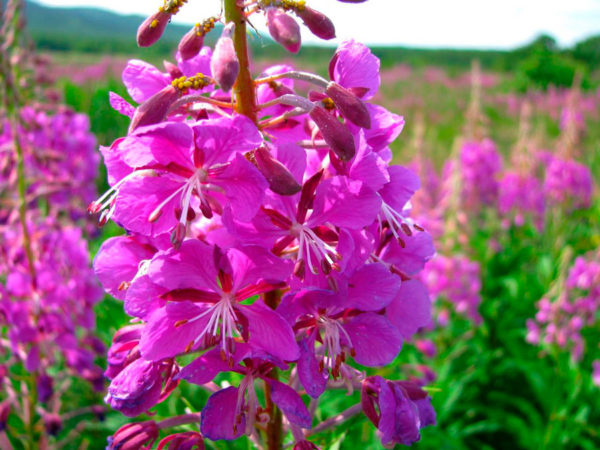
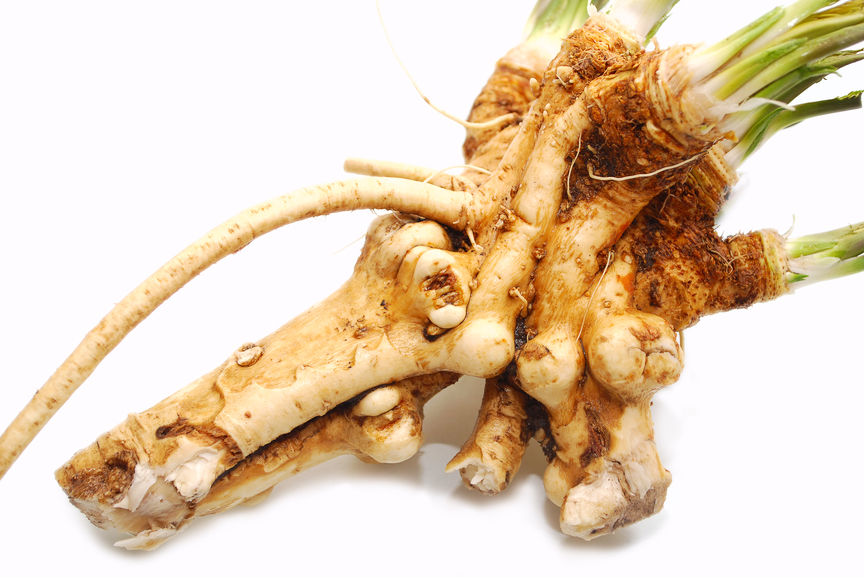
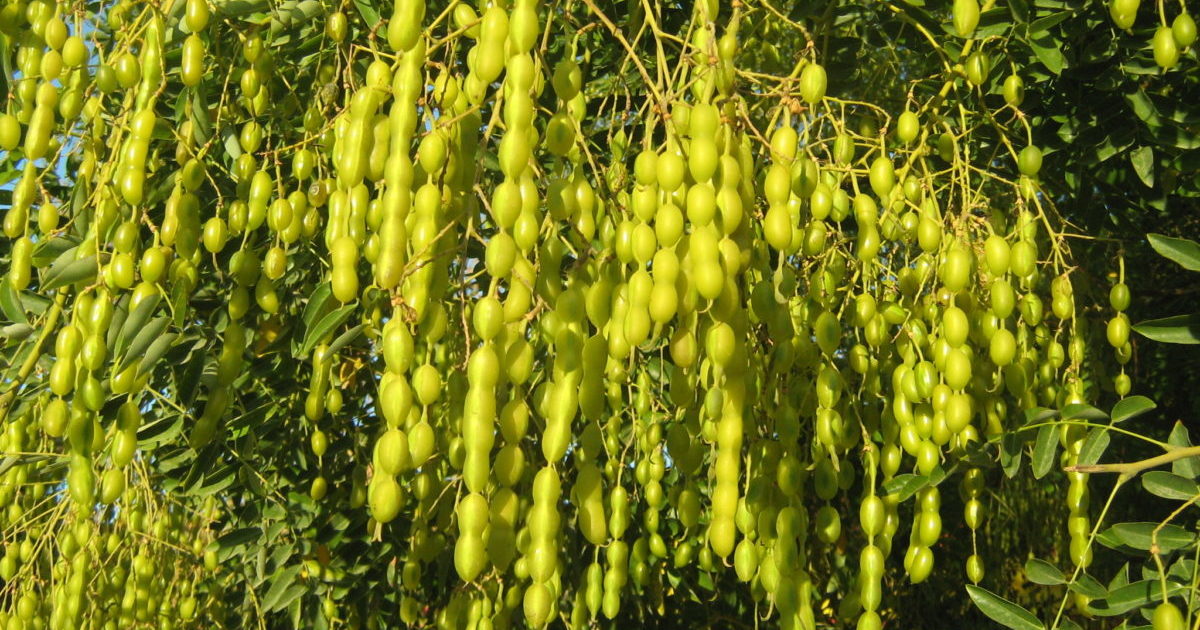
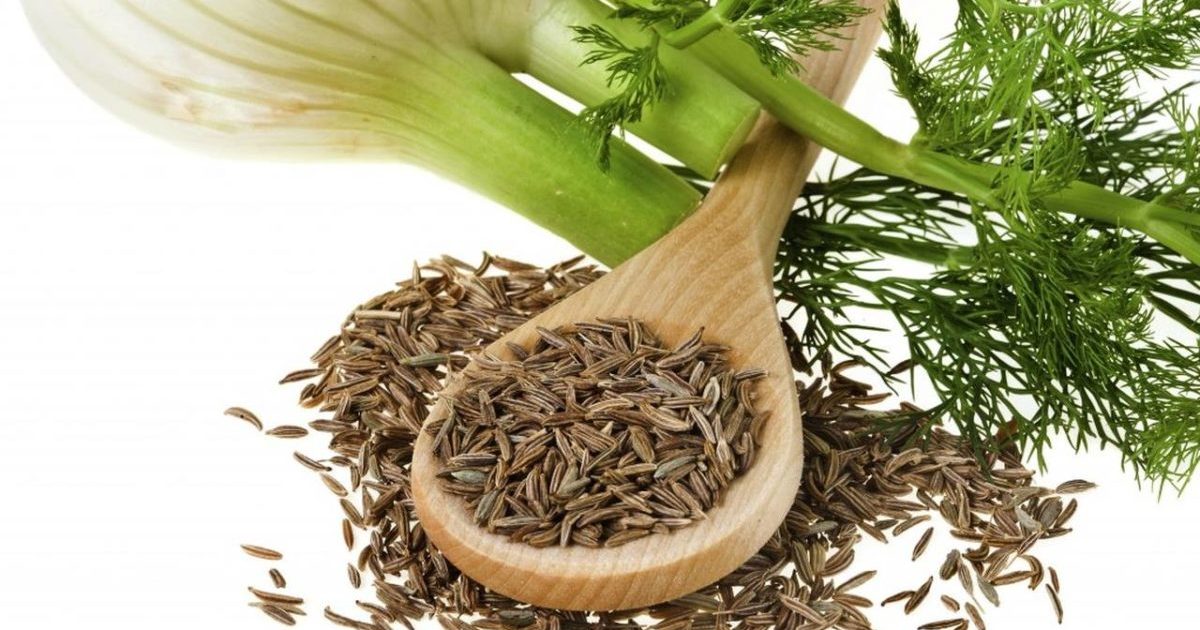 Fennel - beneficial properties and contraindications
Fennel - beneficial properties and contraindications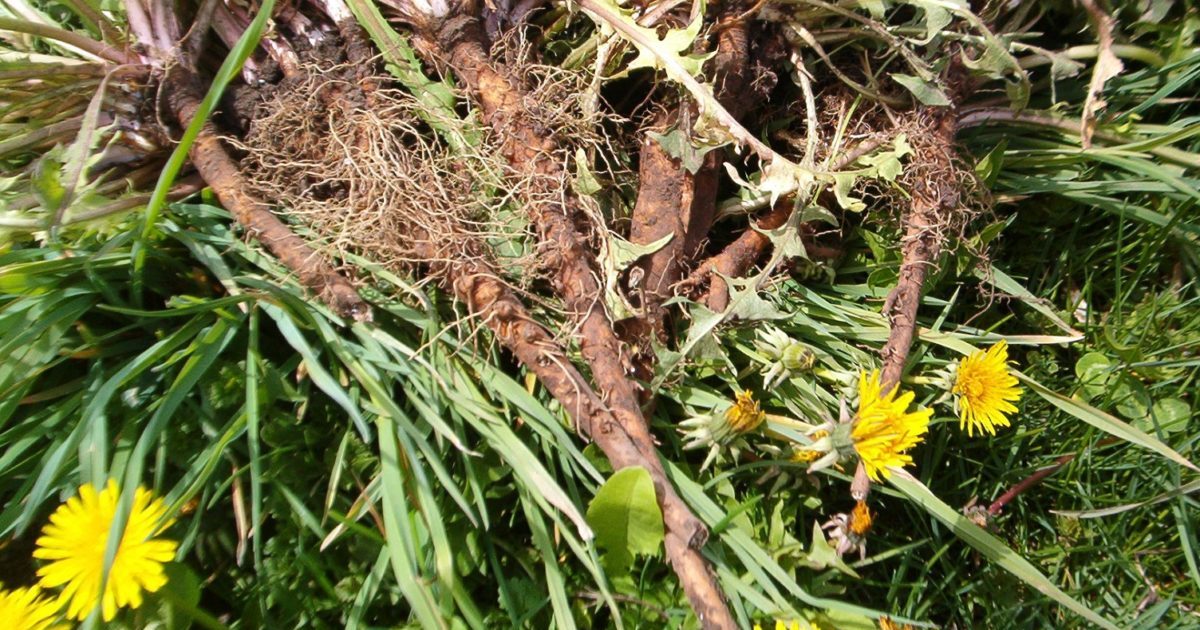 Dandelion Root - Health Benefits and Contraindications
Dandelion Root - Health Benefits and Contraindications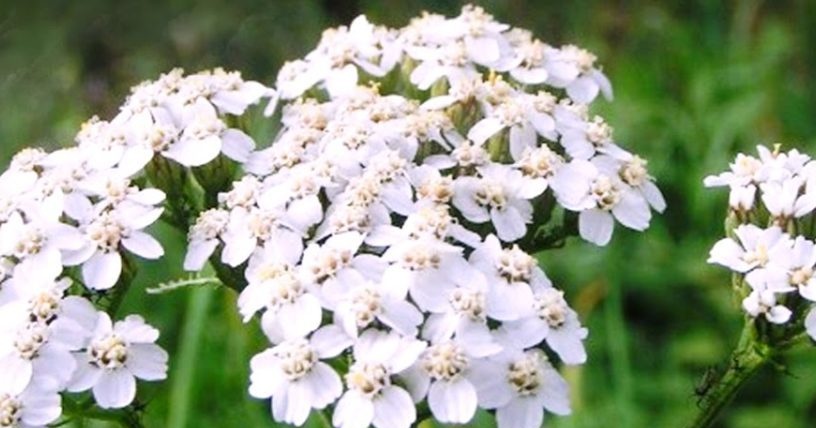 Yarrow - beneficial properties and contraindications for health
Yarrow - beneficial properties and contraindications for health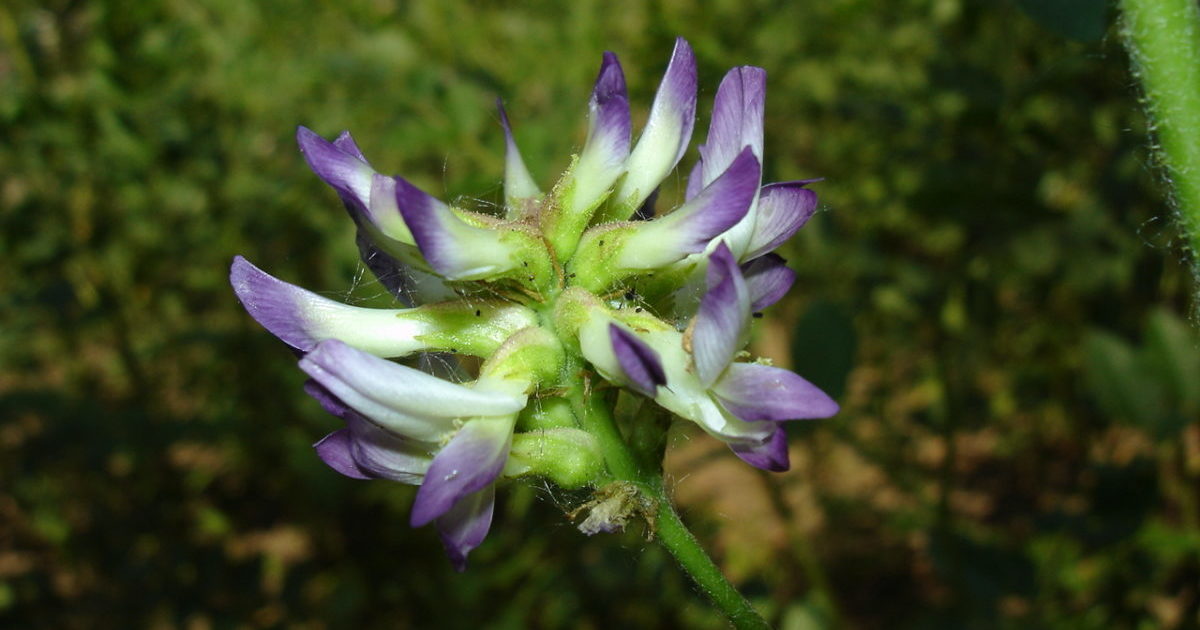 Licorice - beneficial properties and contraindications for health
Licorice - beneficial properties and contraindications for health